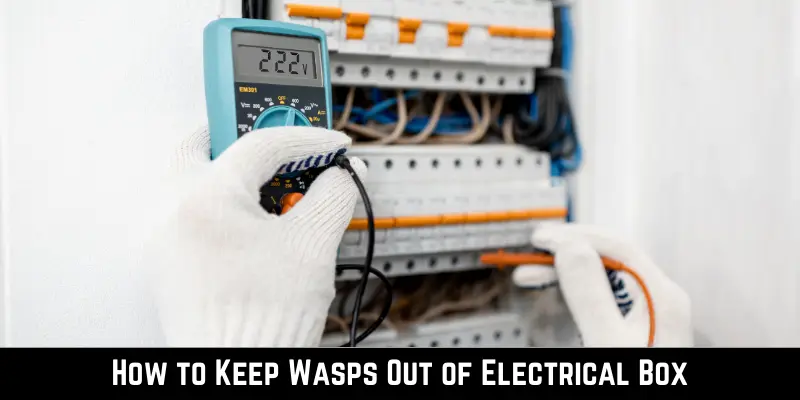Are you struggling with wasps nesting inside your electrical box? It’s a common issue many homeowners face, especially during the warmer months. These pests are not only a nuisance but can also pose significant risks to your property and safety. The question on your mind might be: How to Keep Wasps Out of Electrical Box?
There are proven and practical strategies to deter wasps from choosing your electrical box as their home. From natural repellents to preventive maintenance, we will guide you through various methods to secure your electrical installations.
In this blog discover easy and effective methods to prevent wasps from nesting in your electrical box. Learn about natural deterrents, maintenance tips, and safety measures to protect your property.
Why Wasps Are Attracted to Electrical Boxes

Temperature And Shelter
Like many other insects, wasps are always searching for a cozy and secure place to build their nests. Electrical boxes have become an attractive option due to the heat they emit. The warmth these boxes provide is especially appealing during cooler seasons or at night, offering a stable environment for the wasps to thrive.
In addition to the heat, electrical boxes provide shelter from various environmental elements. They act as a protective cover, shielding the wasps from harsh weather conditions such as rain, wind, and extreme sunlight.
This enclosed space also allows the wasps to build their nests securely, ensuring the stability and longevity of their habitat. By choosing an electrical box as their nesting site, wasps can maintain a comfortable living temperature and protect their colonies from the uncertainties of outdoor living.
Protection From Predators
Safety is a top priority for any living creature, and wasps are no exception. Electrical boxes offer a strategic advantage when it comes to predator avoidance. The confined space and narrow entrances of these boxes make it difficult for predators to access the wasp nests. This reduces the risk of attacks and provides a secure breeding ground for the wasps.
The box’s hard exterior also acts as a barrier, deterring larger predators and ensuring the colony’s safety inside. An electrical box is akin to a fortress for wasps, providing them with the necessary protection to flourish and multiply without constant threat from predators.
Understanding why wasps are attracted to electrical boxes is crucial in developing effective strategies to deter them. By addressing these key factors, homeowners can proactively secure their electrical installations and maintain a wasp-free environment.
Wasp Nest In Electrical box
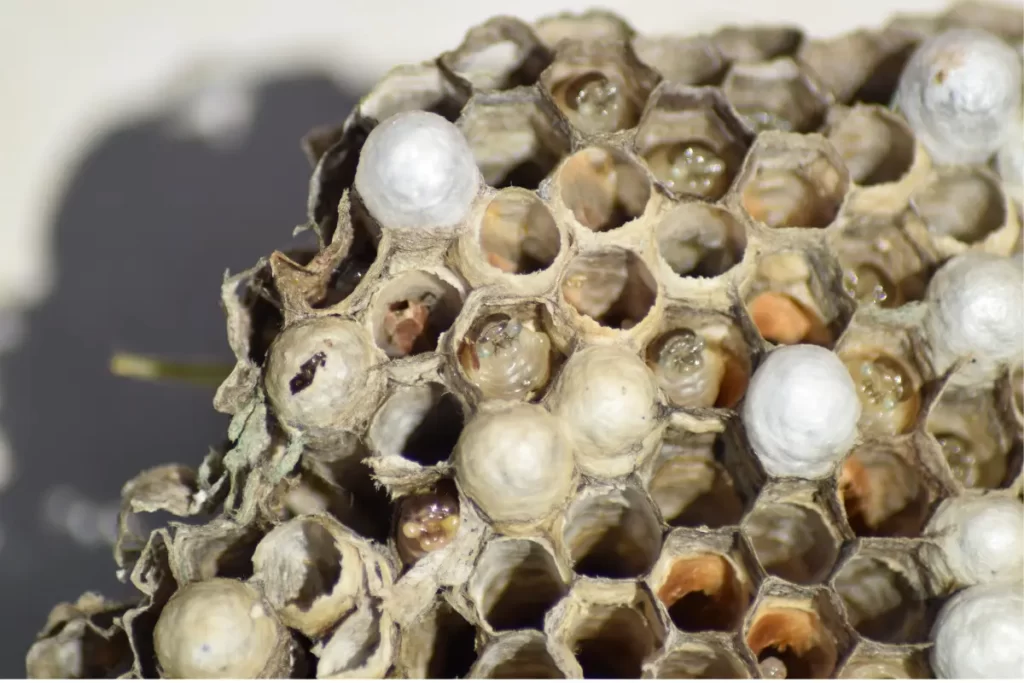
Discovering a wasp nest inside an electrical box can be a worrying situation. Wasps tend to choose these enclosed spaces for the safety and shelter they provide. If you find a nest, it’s important to act carefully and considerately to resolve the issue.
Wasps build their nests from chewed wood fibers mixed with their saliva, creating a papery material. Inside an electrical box, this nest can cause various problems. It might interfere with the electrical components, potentially leading to malfunctions or short circuits.
Moreover, the presence of wasps poses a risk, especially if they feel threatened and become aggressive.
It’s crucial not to try removing the nest yourself, especially if you’re unfamiliar with safe removal practices. Disturbing the nest can provoke the wasps, leading to painful stings. Instead, it’s recommended to contact a professional pest control service. They have the right equipment and experience to safely remove the nest without causing harm to you or the wasps.
Preventive measures can also be taken to avoid wasp nests in electrical boxes. Regular inspections of the area can help in early detection, and sealing openings can prevent wasps from entering. Additionally, using wasp repellents around the electrical box can deter them from approaching.
Handling a wasp nest in an electrical box requires caution and proper knowledge. By understanding the risks and taking the necessary precautions, you can ensure the safety of your home and effectively deal with this common issue. Remember, when in doubt, always seek professional help to handle the situation safely and efficiently.
Dangers Of Wasps In Electrical Boxes
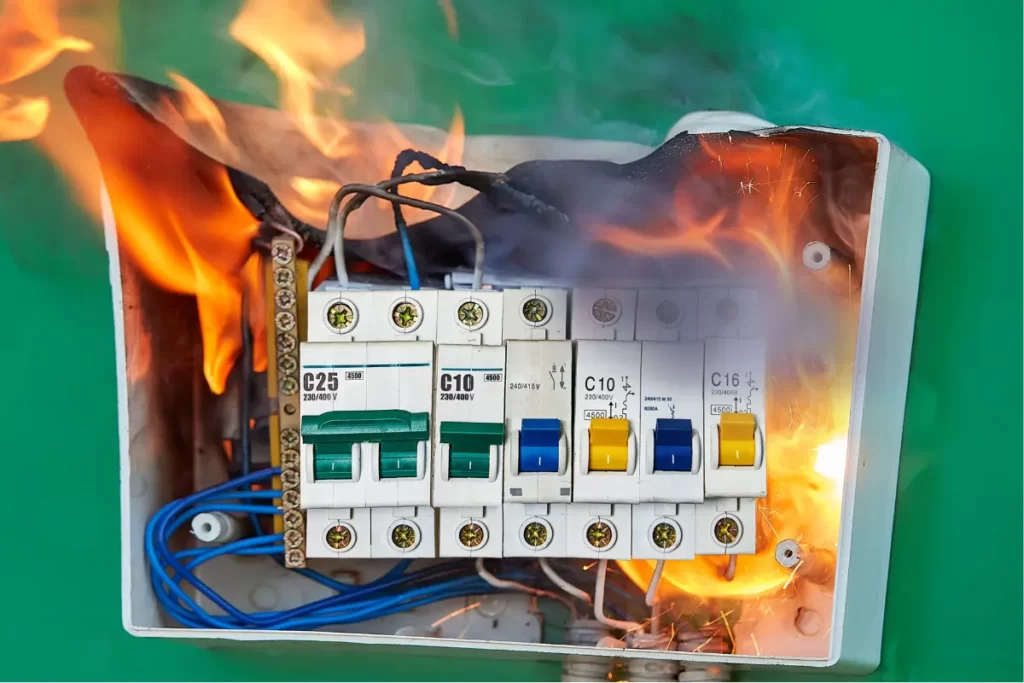
Potential for Electrical Failures
Having wasps in electrical boxes is risky because it can lead to serious electrical issues. The nests that wasps build are made of a papery substance created from chewed wood fibres and saliva.
These nests can grow quite large, and when they are built inside electrical boxes, they can obstruct and interfere with the electrical components and wiring. This interference can lead to malfunctions, short circuits, or even cause the electrical system to fail.
In some cases, the nests might block ventilation openings, causing the electrical system to overheat, a fire hazard. It’s essential to address this issue promptly to prevent potential damage to the electrical system and avoid costly repairs.
Regular inspections of electrical boxes, especially during the spring and summer when wasps are most active, can help in early detection and removal of nests.
Safety Hazards
Wasps are generally aggressive and territorial insects. If they feel threatened, they won’t hesitate to attack and sting. Having a wasp nest in an electrical box creates a safety hazard, especially if the box is located near frequently used areas of your property.
The risk of getting stung increases, and this can be particularly dangerous for individuals who are allergic to wasp stings. A single sting can cause a severe allergic reaction, requiring immediate medical attention. Even if you’re not allergic, multiple stings can be harmful. To mitigate these risks, it’s crucial not to approach or disturb the nest.
Instead, seek professional help to remove the nest and the wasps safely. Additionally, taking preventive measures to deter wasps can help in avoiding these safety hazards and ensure a safe environment around your property.
Addressing the issue of wasps in electrical boxes is vital for the residents’ safety and the integrity of the electrical system. Recognizing the potential dangers and taking proactive measures can go a long way in preventing problems and ensuring a safe and waste-free environment.
Can Wasps Inside Electrical Boxes Cause A Fire?
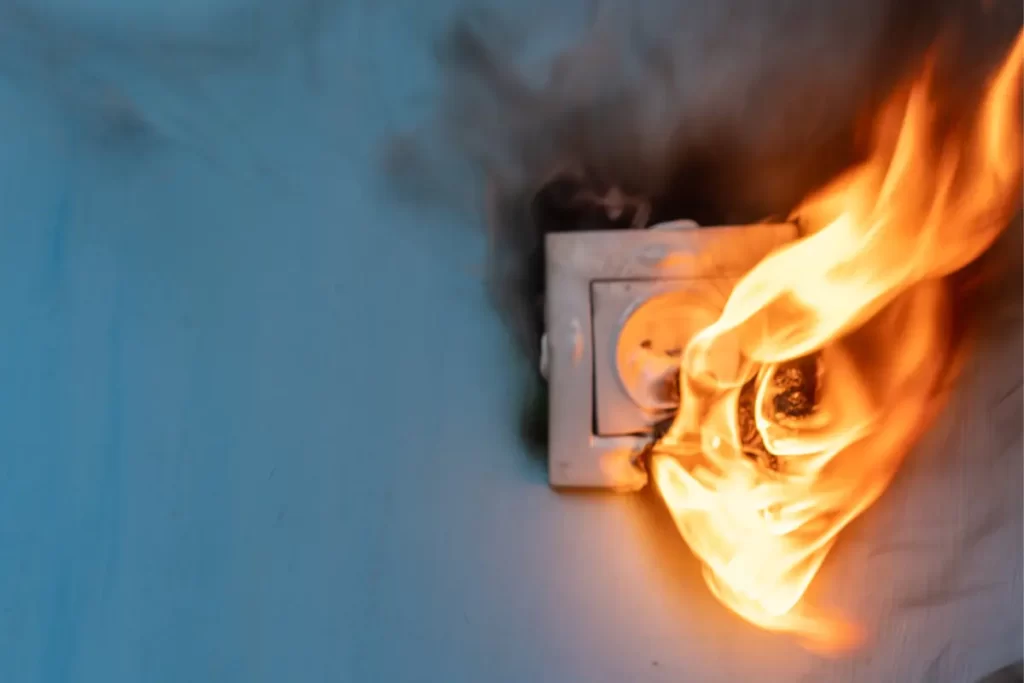
When wasps decide to build a nest inside an electrical box, it’s more than just a simple nuisance; it can be a genuine safety hazard with the potential to lead to a fire. The material that wasps use to construct their nests is highly flammable. Made from chewed wood fibers mixed with their saliva, the nest becomes a papery substance that can easily catch fire.
Electrical boxes house various components and wiring, with electricity flowing through them constantly. If a wasp nest is large enough, it could interfere with these electrical components, potentially leading to short circuits. A short circuit happens when there is an abnormal connection between two nodes of an electric circuit, leading to the flow of a higher current. This, in turn, can generate a significant amount of heat. Given the wasp nest material’s explosive nature, this heat could ignite the nest, leading to a fire.
The risk is heightened if the electrical box is old or improperly maintained, as the components inside may be more susceptible to faults. Additionally, wasps tend to build their nests in sheltered and undisturbed locations, which is why electrical boxes appeal to them. This means that a nest could go unnoticed for a considerable amount of time, increasing the risk of an incident.
How to Keep Wasps Out of Electrical Box
Natural Methods To Deter Wasps

- Peppermint Oil: Wasps dislike the strong scent of peppermint oil, making it an effective natural deterrent. To use this method, mix a tablespoon of peppermint oil with water and a small amount of dish soap to create a spray. Apply this mixture around the electrical box, carefully avoiding any wiring or electrical components directly. The strong scent will discourage wasps from approaching and nesting in the area. Ensure to reapply the mixture regularly, especially after rain, to maintain its effectiveness.
- Cucumber Slices: Wasps have an aversion to the bitter compounds found in cucumber. Placing slices of fresh cucumber around the electrical box can help keep wasps at bay. Make sure to replace the cucumber slices regularly as they dry out or decompose. This method is safe, natural, and does not pose a risk to the electrical components.
- Decoy Nests: Wasps are territorial creatures, and they tend to avoid areas where other wasp colonies are present. By hanging a decoy wasp nest near the electrical box, you can trick the wasps into thinking the area is already occupied, deterring them from building a nest. Ensure the decoy is placed at a safe distance from the electrical box to avoid any interference.
- Soapy Water Solution: A mixture of water and dish soap can act as a natural wasp repellent. The soap in the mixture breaks down the wasps’ waxy outer layer, making it an effective deterrent. To use this method, mix water with a few drops of dish soap and spray it around the electrical box. Avoid spraying directly onto electrical components to prevent any damage.
- Herbs and Spices: Certain herbs and spices, such as cloves, garlic, and bay leaves, are known to repel wasps. Placing these herbs and spices in small mesh bags and hanging them around the electrical box can help deter wasps. Ensure the bags are securely closed to prevent any loose material from falling into the electrical components.
By employing these natural methods, you can effectively deter wasps from nesting in and around electrical boxes, ensuring a safer environment and preventing potential damage to electrical components. Remember to regularly check and maintain these deterrents to ensure their continued effectiveness.
Commercial Solutions
Wasp Sprays
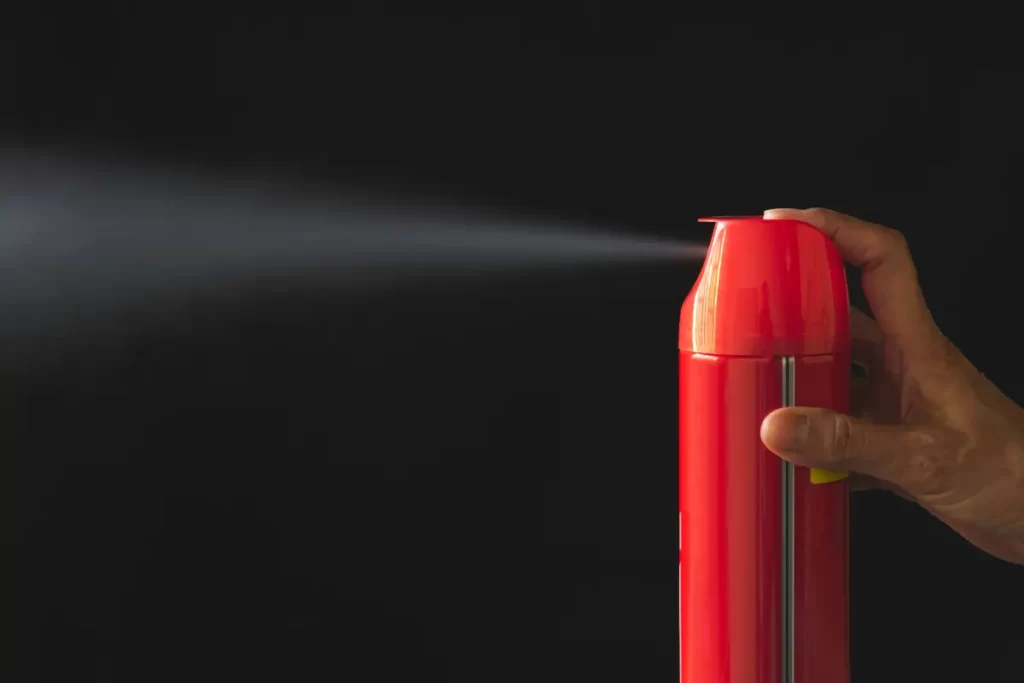
Wasp sprays are a popular commercial solution for dealing with wasp infestations. These sprays typically contain potent chemicals that quickly knock down and kill wasps on contact.
To use wasp sprays effectively, aim the spray directly at the nest or the wasps from a safe distance, following the product’s instructions carefully. It’s crucial to wear protective clothing and conduct the spraying during the evening when wasps are less active.
While wasp sprays are highly effective, it’s essential to use them responsibly, avoiding overuse and ensuring they do not come into contact with electrical components in the box, as this could pose a safety risk. After spraying, check the area periodically to ensure all the wasps are gone and safely remove any remaining nest material.
Electric Box Covers
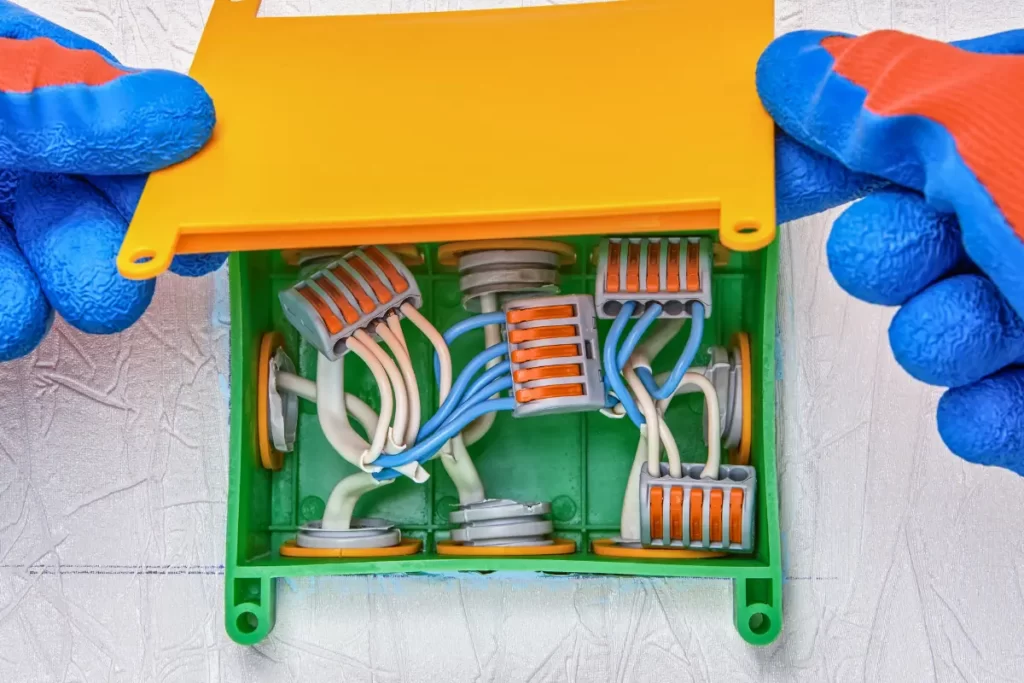
Electric box covers are designed to protect electrical boxes from external elements, including pests like wasps. These covers are made from durable materials that resist the elements, providing a physical barrier between the wasps and the electrical box. When choosing an electric box cover, ensure it is the right size and fit for your specific electrical box model.
Proper installation is key to ensuring the cover provides adequate protection. Some electric box covers also come with built-in wasp deterrents, such as reflective surfaces or materials that wasps find unpleasant. Regularly inspect the cover for wear or damage and replace it if necessary. Using an electric box cover can provide a long-term solution to keep wasps away, ensuring the safety and functionality of the electrical components inside.
Combining these commercial solutions can create a comprehensive approach to deter wasps from nesting in or near electrical boxes, protecting the equipment and the people around it. Always follow product instructions and safety guidelines to ensure effective and safe usage.
Effective Preventive Measures
Sealing The Electrical Box
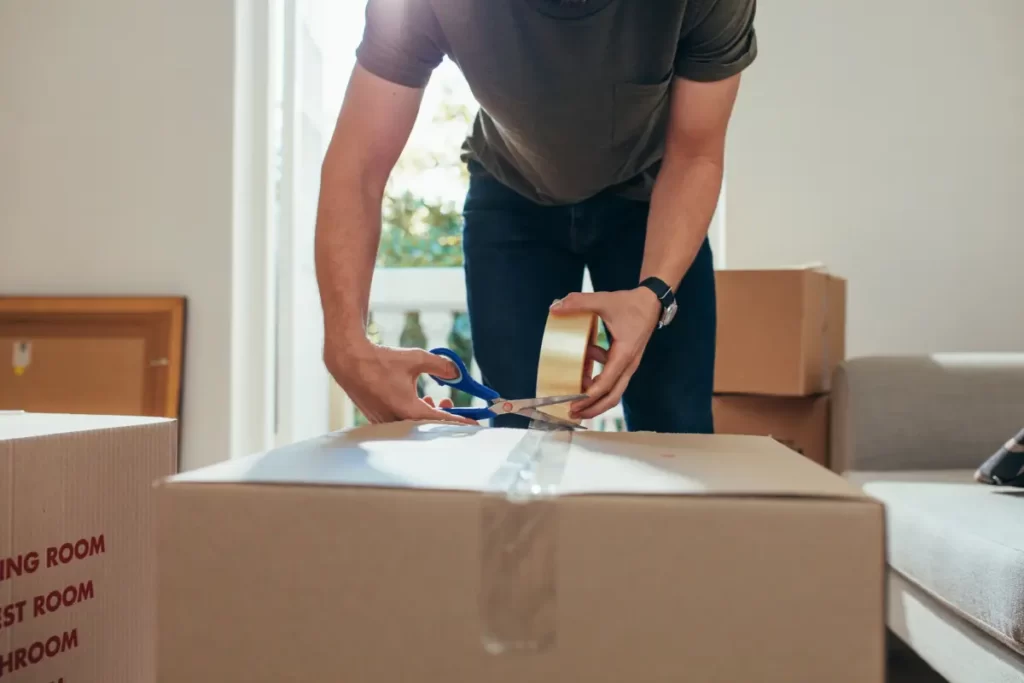
Ensuring that your electrical box is properly sealed is crucial in preventing wasps from residence. Wasps are attracted to enclosed spaces that provide shelter, making electrical boxes ideal for them to build nests.
Inspect your electrical box for any cracks, holes, or openings to prevent this. Even a small gap can be an invitation for a wasp to enter. Use a high-quality sealant to close these gaps, particularly to corners and edges where gaps might be more prevalent. If the electrical box has missing or damaged parts, replace them as soon as possible to maintain a secure enclosure.
Regular maintenance is key, so make it a habit to check the condition of your electrical box periodically, especially during spring and summer when wasps are most active. Keeping the box sealed makes it less accessible and attractive to wasps, reducing the likelihood of an infestation.
Regular Inspection
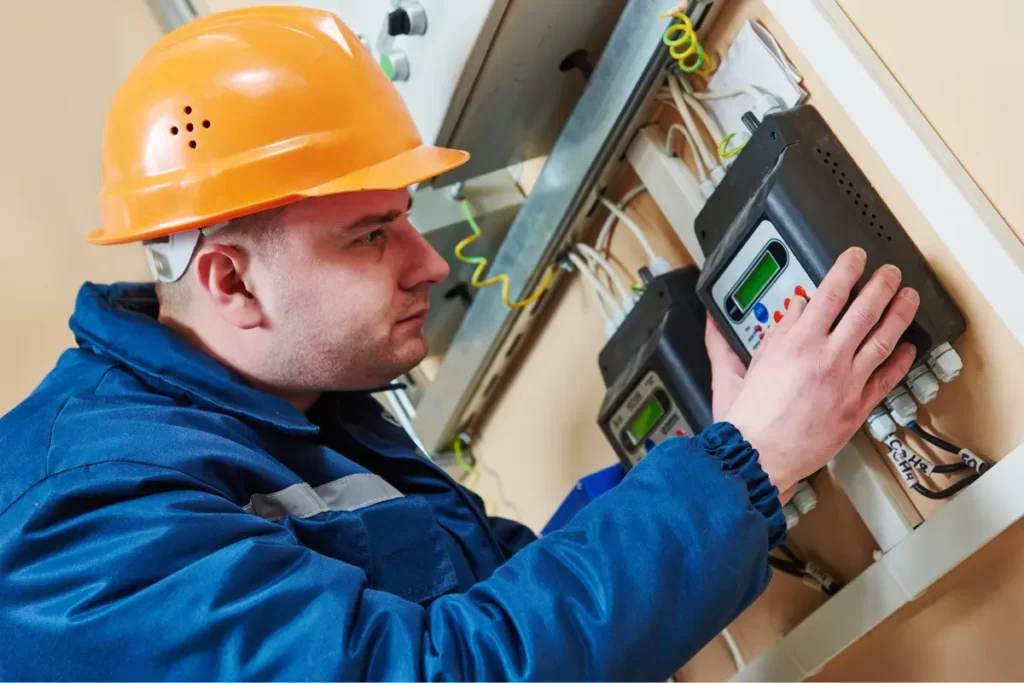
Regularly inspecting your electrical box and the surrounding area is another preventive measure. Wasps build their nests in quiet, undisturbed areas, so a frequent human presence can deter them. During your inspections, look for early signs of a wasp nest, such as small paper-like structures attached to the box, or the presence of wasps.
Detecting a nest early on is easier to remove and poses a smaller risk than a fully established nest. Additionally, check for other attractants that might be drawing wasps to the area, such as open garbage bins or food scraps, and remove them promptly. Establishing a routine inspection schedule can aid in early detection and prevention, helping to keep the area wasp-free.
Setting Up Traps
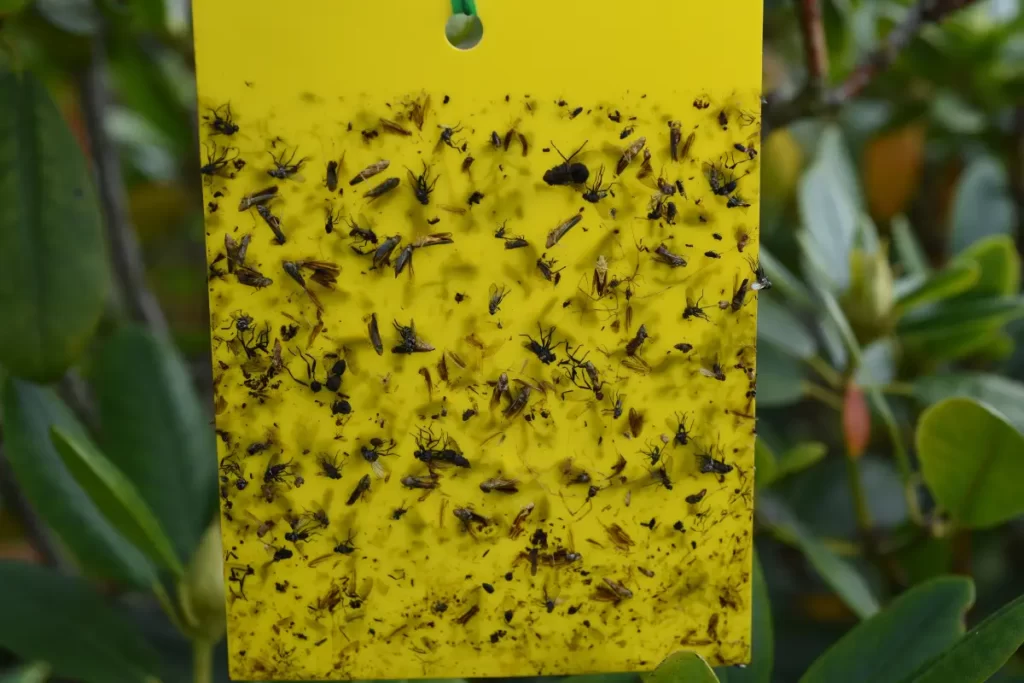
Wasp traps can be a helpful tool in managing and reducing wasp populations around your electrical box. These traps lure wasps in with bait, trapping them inside. When setting up wasp traps, place them safely from human activity to prevent accidental encounters. Additionally, ensure the traps are near the electrical box, as this is the area you want to protect.
Regularly check and empty the traps, following the manufacturer’s instructions and taking necessary precautions to avoid stings. While traps can help reduce the number of wasps in the immediate area, they should be used with other preventive measures for maximum effectiveness. Remember, the goal is not just to trap wasps but to create an environment that is unappealing to them in the first place.
By integrating these preventive measures into your routine maintenance, you can create a safer environment free from the dangers of wasp infestations. Remember, consistency is key, and taking proactive steps can make all the difference in keeping your electrical box wasp-free.
Conclusion
In summary, effectively preventing wasps from invading electrical boxes is crucial for safety and equipment longevity. Sealing gaps or cracks in the electrical box is the first line of defense, ensuring that wasps cannot find an entry point. Regular inspections play a significant role in early detection and management, helping to spot any potential issues before they escalate. Utilizing wasp traps can further reduce the local wasp population and minimize the infestation risk.
It is important to approach wasp prevention with consistency and attention to detail. Small actions, like routinely checking and maintaining the electrical box, can substantially deter wasps. Additionally, being mindful of the surrounding environment and eliminating potential attractants contributes to a less inviting habitat for these insects.
FAQs
Gowton, Chelsea Megan, Michał Reut, and Juli Carrillo. “Peppermint essential oil inhibits Drosophila suzukii emergence but reduces Pachycrepoideus vindemmiae parasitism rates.” Scientific Reports 10, no. 1 (2020): 9090.
